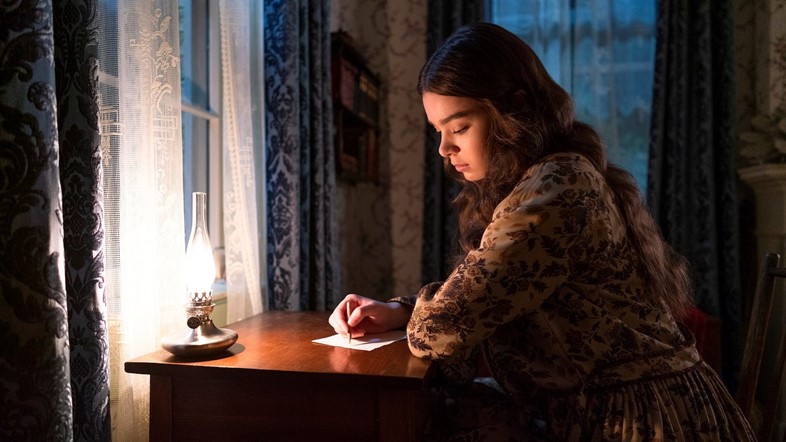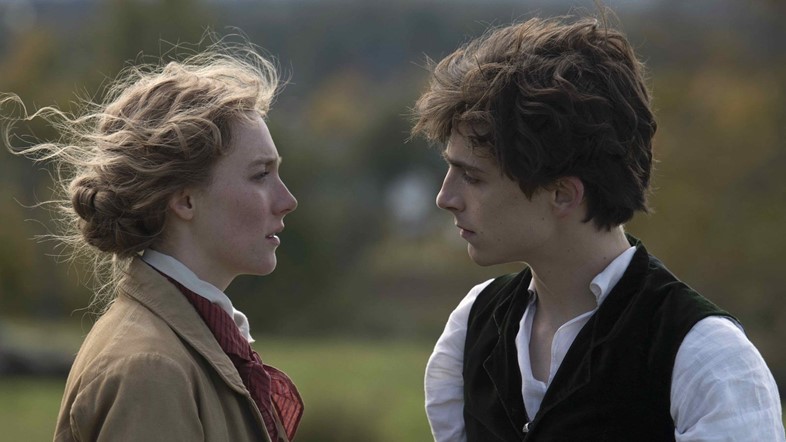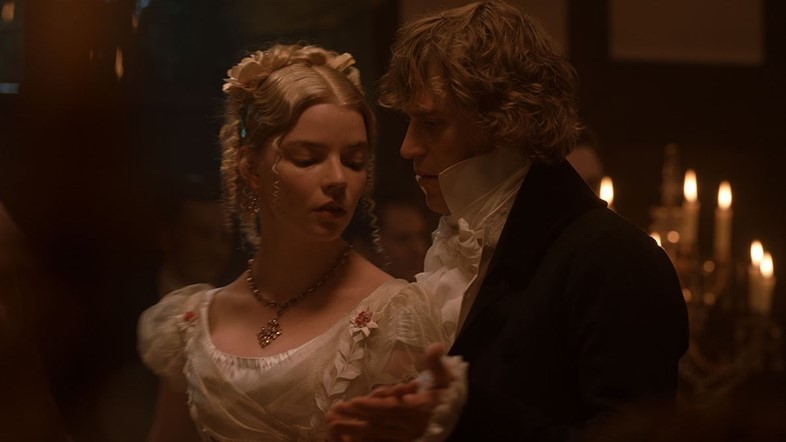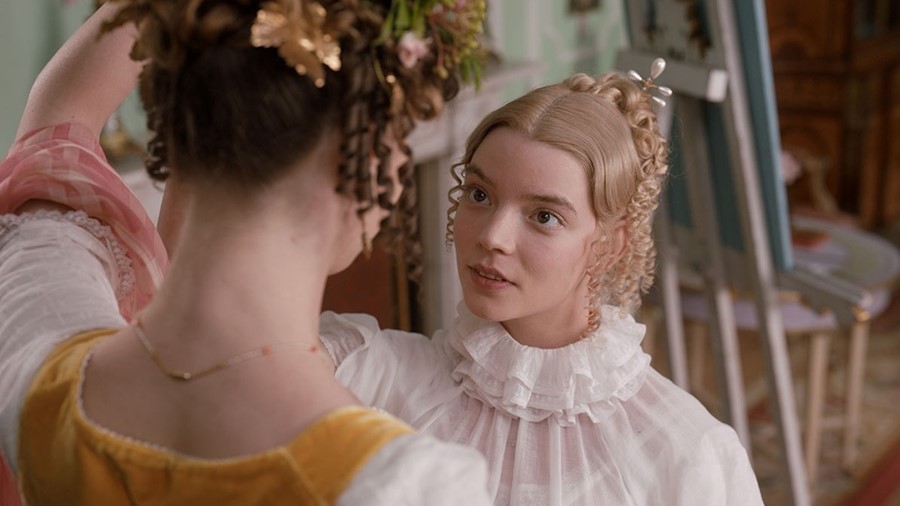As a new adaptation of Jane Austen’s Emma hits screens, Amanda Feinman looks at our current collective fascination with female-driven 19th-century period pieces
There is something irrepressibly cool about Emma, Autumn de Wilde’s new adaptation of the final novel Jane Austen published during her lifetime. There is, first, that aggressive title stylisation (serif font, all-caps, pale pink, full stop). There’s Anya Taylor-Joy, a horror-genre darling, bringing a bit of an edge to the queen bee of Hartfield. There’s De Wilde’s alluring visual world – empire dresses, pastel tea cakes, pin-tight ringlets, rolling English hills – made somehow just too symmetrical, just too dexterously choreographed, to be taking itself completely seriously. This is Emma, done a little cheekily. Austen scholars will tell you that such playfulness is in keeping with the spirit of this text (often designated a “comedy of manners”), and with Austen herself – who, despite the stuffiness we tend to assign 19th-century novelists, had a strong satirical streak along with her romantic one.
This Emma adaptation comes right on the heels of Greta Gerwig’s Little Women, last year’s consummate cool-girl 19th-century period piece (something about Jo March’s tearful declaration that women have minds and souls, a post-#MeToo exasperated yawp from the mouth of It Girl du jour Saoirse Ronan, effectively captured our moment). Apple TV mini-series Dickinson, which also came out last year, mixed modern and Victorian aesthetics to refit Emily Dickinson within the politics of Lizzo (who, yes, featured on the soundtrack). The previous year similarly saw Colette and Mary Shelley, each a reimagining of the life of a Victorian-era female novelist, fighting for authorial validity.

This is not, by any stretch, the first explosion of the femme 19th-century literary world into popular culture. It’s been about 25 years since the last major cinematic moment for Jane Austen in general and for Emma in particular, which was adapted for the screen three times in the 90s (also, shout-out to the 2005 Pride & Prejudice, an unparalleled moment in my girlhood). And still, this current flare-up feels different. It’s intentionally layered, blended: 1800s storytelling meets a 2020 sense of it’s about time. Characters making reclamatory statements in historically-accurate corsets, with varying degrees of subtlety.
Both Jo March and Emily Dickinson devoted themselves to breaking into a male-dominated creative field over attaining money and society, and neither Dickinson nor Louisa May Alcott, Jo’s real-life counterpart, ever married. All of which yields rather straightforwardly to the modern cool-girl treatment. Jo did marry, though, and one of the best of Greta Gerwig’s alterations was to depict Jo’s original love story and to outwardly acknowledge the moral and economic questions surrounding settling a literary heroine into marriage. That’s a tricky tightrope to walk, something with which Alcott likely struggled her entire career, and it encapsulates Gerwig’s understanding of the intricacies underlying Alcott’s text (it’s dexterously done, and why Little Women is perhaps the best of these adaptations).

Emma Woodhouse is more an Amy March than a Jo – which is to say, in terms of striking contemporary chords in a cinematic adaptation, she’s a little more difficult. She’s a matchmaker and a busybody, almost entirely preoccupied with social and romantic goings-on; her project is not one of self-betterment by 21st-century standards, but by her own. Taylor-Joy and De Wilde have certainly brought a lot of modern sharpness to Emma – the aforementioned cheekiness helps illuminate Austen’s satirical leanings, her implicit acknowledgement that Regency-era frilly fretting was all a little ridiculous (there are many comedic shots of miserable faces under elaborate bonnets, and, at one point, a game of “no, after you” in a doorway that threatens to last for eternity).
Taylor-Joy’s Emma is a perfect mix of self-delusion and charm, smarts and carelessness, the fallible likeability of a well-rounded contemporary heroine – plus, a gal who gets nosebleeds at inopportune moments. But she’s also still Emma, a high-born English woman in 1815 who is endlessly butting in where she doesn’t belong, delighting in gossip and letter-swapping, stage-whispering about what mysterious admirer has sent Jane Fairfax a pianoforte, and worrying about romantic prospects – others’, and her own.

What’s notable, then, in terms of this film trend, is that Emma is still functionally a Regency romantic comedy. Adaptations like De Wilde’s – or like Gerwig’s, which makes some modifications but still revels in its period aesthetic and Alcott’s characters – speak to our current interest in rediscovering what’s modern and interesting in these 19th-century texts, without needing to stray too far from what they are. That these period pieces are shining right now has to do with millennial feminism’s embrace of all kinds of narratives – including domestic, romantic, and not-overtly-political ones – as valid within the in-vogue political project of just telling women’s stories, seriously. We’re clearly more able than ever to engage thoughtfully with the irony, the social commentary, and the modern resonances in Austen or in Alcott, but we’re also excited about their actual plots, their character arcs, as things that can be complex and compound (and, yes, cool).
Which is no small revelation! These stories have long been banished to the realm of the inconsequential, the special-interest, the hyper-feminine, and to recover them within the Twitter zeitgeist, where Lizzo and Euphoria eyeshadow live, is kind of a major thing. It’s a step toward acknowledging that things needn’t be either traditionally girlish or progressive, emotional and theatrical or stylish in a contemporary sense. That Emma Woodhouse had a lot going on worth revisiting; that we can have our giant cupcake and eat it, too.
